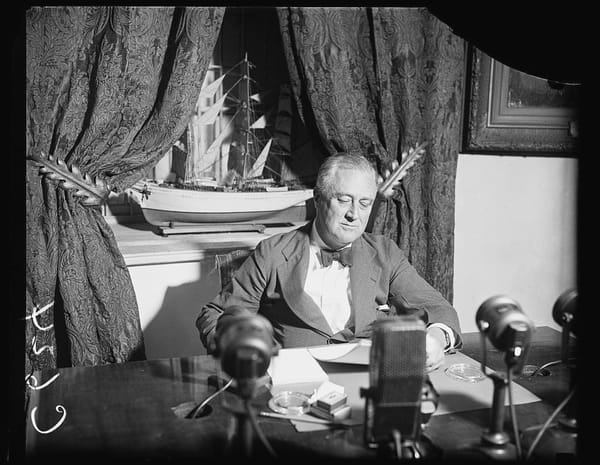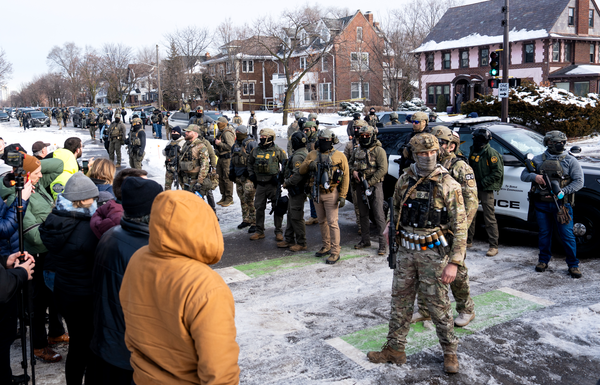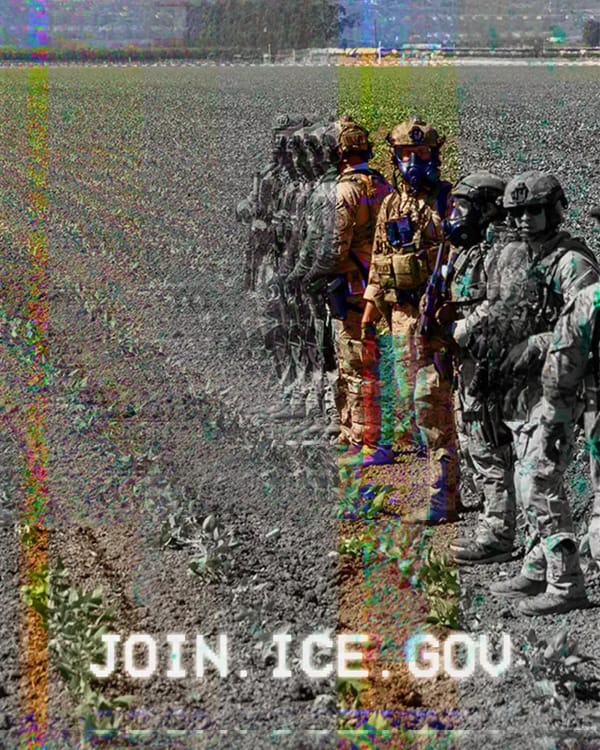Two historians weigh in on ICE and the Gestapo
An examination of the Gestapo and ICE.
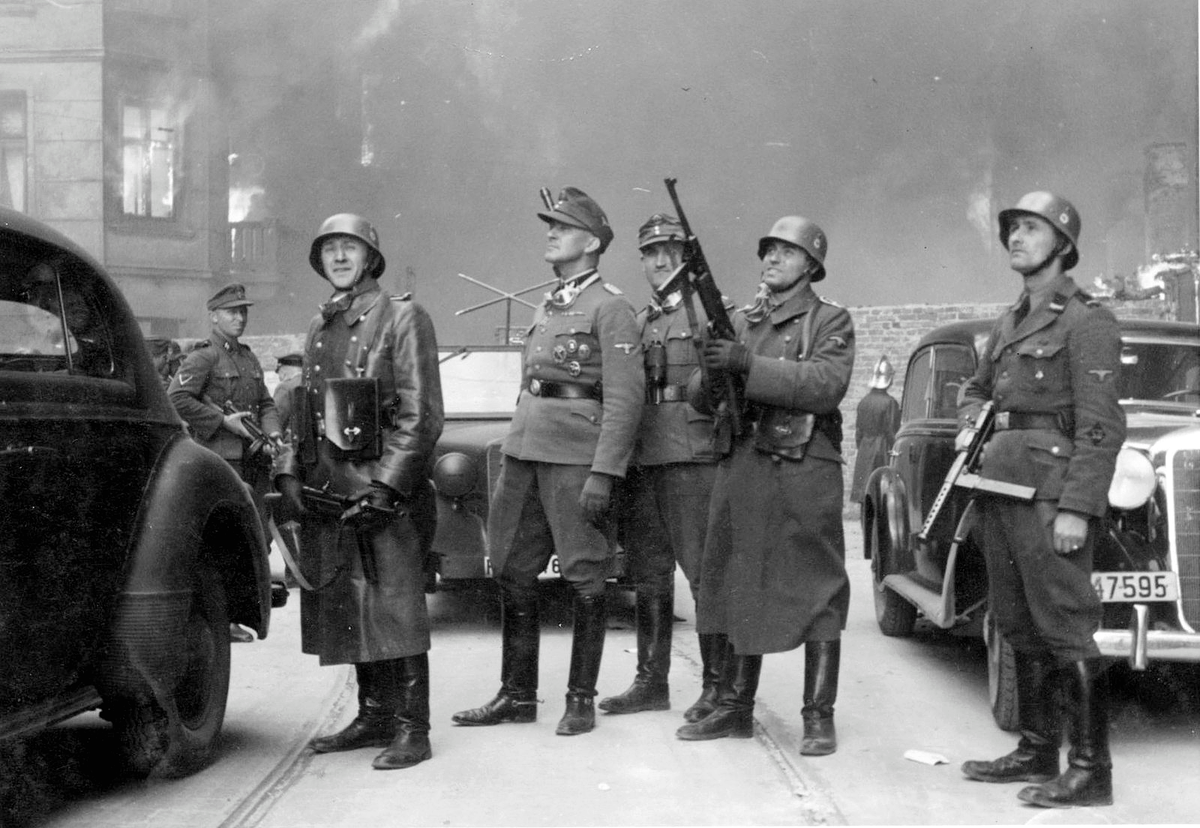
Under Donald Trump's leadership, ICE has been terrorizing neighborhoods in California and across the country. Trump campaigned on arresting and deporting the "worst of the worst" criminals, and his administration has claimed it's going after murderers and rapists. But the data shows 71 percent of those arrested by ICE have no criminal record, and only 7 percent have a violent conviction.
White House advisor Stephen Miller seemingly directed ICE to start sweeping up undocumented immigrants at Home Depot locations, and the administration has sent ICE into various places of work, schools and even hospitals. ICE agents often wear masks, fail to identify themselves and travel in unmarked vehicles.
Because of these tactics, some have started referring to these ICE agents as the Gestapo—the Nazi-era secret police. Minnesota Gov. Tim Walz has used the term, as well as Rep. Stephen Lynch (D-MA) and many others. Unsurprisingly, the Department of Homeland Security isn't too happy about ICE agents being called Nazis. Perhaps they should adjust their behavior if they want to avoid such labels.
To better understand whether this comparison is appropriate, I reached out to experts on Nazi Germany and World War II.
Richard Breitman, a distinguished professor emeritus of history at American University, has written or co-authored 14 books about German history and the Holocaust. He tells me you can identify some clear similarities and differences between ICE and the Gestapo.
"The Gestapo was a political police force that tracked and punished all the defined enemies of the Nazi regime, including citizens who were defined by race," Breitman says. "ICE, so far, limits itself to seizing and holding unauthorized migrants or non-citizens judged to have misbehaved in the eyes of the administration."
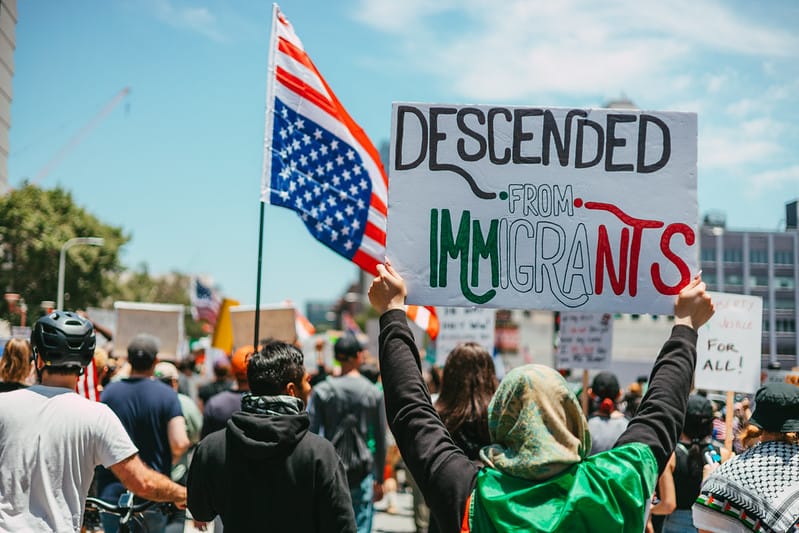
The Gestapo operated without judicial or administrative checks, Breitman notes, whereas ICE can still be restrained by U.S. judges. He says many Gestapo officers were members of the SS, which operated the Nazi concentration camps. The guards at these camps often killed prisoners, and he says others "died as a result of mistreatment." While ICE is sending people to atrocious detention centers, they are not equivalent to Nazi camps.
Laurie Marhoefer, a history professor at the University of Washington, also studies Nazi Germany. He says the Gestapo was a political division of the federal German police that could jail anyone for any reason. This was done "outside of the existing legal system."
"ICE mirrors the Gestapo in that we're seeing extra-legal detention, as well as an attempt to normalize it and expand it," Marhoefer says. "ICE isn't as bad as the Gestapo got, but what's concerning is that any time you allow this sort of system to develop, you run the risk of what the Gestapo did—expansion, the growth of violence, the use of the system broadly against political opponents, racial minorities, sexual minorities, etc."
Perhaps ICE hasn’t yet reached the extreme levels of authoritarian behavior seen in Nazi Germany, but that may be exactly why people are using this harsh language—as a warning. It's a call to action before things get worse, because history has shown us what can happen.
"I do think Trumpism has authoritarian tendencies. I'm particularly worried about the expansion of ICE and ICE holding people outside our existing legal system in indefinite detention without benefit of a legal process," Marhoefer says. "That's a hallmark of authoritarianism. I therefore don't find the comparisons inappropriate—though it's important to note that by the 1940s Nazi Germany reached a level of violence and state power that we're not even close to."
I'm certainly not going to tell anyone not to call ICE the Gestapo, and I've used the term myself here and there. There was a time when comparing anything to the Nazis would immediately discredit you. But given the actions of the Trump administration, these comparisons no longer seem out of bounds. If people don’t loudly warn of where this could lead, we may find ourselves in a far more perilous situation.


